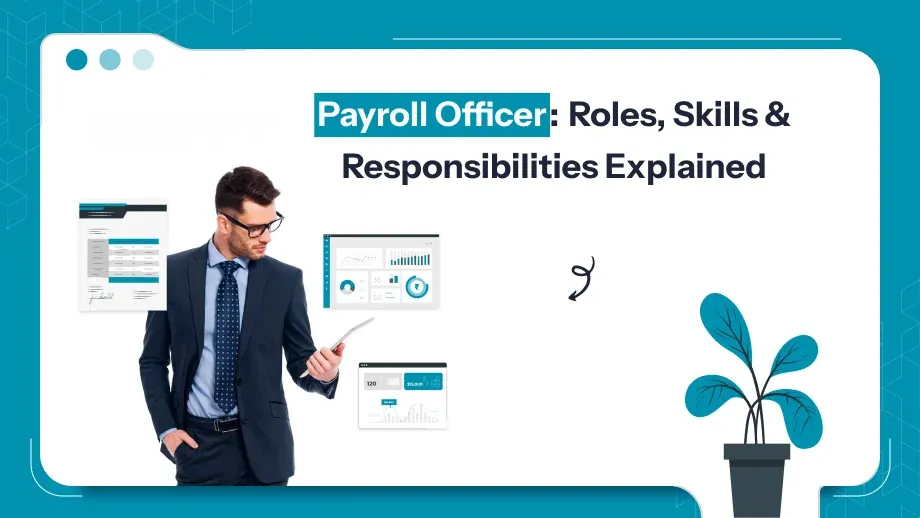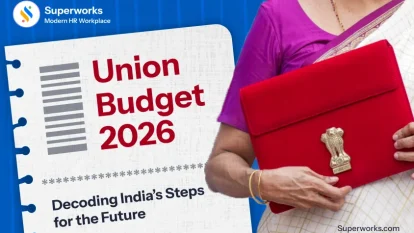
In charge of overseeing a business’s payment system, a payroll officer is essential. The payroll officer ensures everything runs well, from making sure workers are paid correctly to adhering to tax regulations. They take care of everything from payroll process in india deductions and figuring up pay to keeping correct records for taxation.
Because even minor mistakes might result in compliance problems or employee dissatisfaction the role demands meticulous focus on detail. Payroll officers serve a crucial role in promoting confidence and openness inside the business because they serve as a point of contact for employees with salary-related issues.
What is a payroll officer?
A payroll officer is a specialist that oversees the precise processing of employee salaries, benefits, wages, and deductions within a company. This role is essential to ensuring that staff receive their paychecks on time and that all financial activities comply with the law. Maintaining the company’s liquidity and making sure employees are happy with their pay requires payroll managers.
Duties of payroll officer
Processing Payroll:
Correctly and promptly processing payroll is the main responsibility for a payroll officer. This includes figuring out employee pay, overtime, bonuses, and other benefits. The payroll officer makes sure every one of the payroll database are done in compliance with employment contracts and company procedures.
Managing Deductions and Benefits:
Payroll officers are responsible for overseeing employee deductions, which may include taxes, insurance premiums, retirement input, and other optional perks. They guarantee that the right amounts are withheld from each paycheck and ensure the business quickly transfers these payments to the right departments or benefits suppliers.
Tax Compliance:
Payroll officers must be highly knowledgeable about the tax laws governing their locality, state, and federal governments. They calculate the right amount of income tax, social security, and other deductions from the employees’ salaries required by the government. The payroll officer is responsible for ensuring accuracy in tax filing and submitting on time.
Maintaining Payroll Records:
Another key responsibility is maintaining accurate records of all payroll-related data. This includes salary history, deductions, bonuses, and leave balances. These records must be carefully updated to ensure accuracy and are essential for tax filings, audits, and employee reference.
Handling Employees’ Enquiries:
Payroll officers are contact officers for queries related to employees on issues about pay, income tax, and other benefits-related issues. The answers must be clear, accurate, and prompt in order to assist employee concerns and resolve them accordingly.
Reporting and auditing:
Payroll officers prepare numerous report on the payroll processing such as tax liability, deductions, and employee’s earnings. It may also conduct internal audits that check the accuracy and completeness of payroll records for management or authorities.
Why is the Payroll Officer role important?
The payroll officer has a very integral role in a business to function smoothly. Contributions towards job satisfaction arise from the proper payment of employees with respect to time, and a motivated working force will remain pertinent. The other role, through tax compliance and regulatory reporting, helps the company avoid legal issues, which may lead to penalties.
Looking for a skilled payroll officer to streamline your payroll process?
Ensure accurate, timely payments and compliance with expert payroll management today!
Payroll Officer Job Description – Detailed Breakdown
For an organization’s payroll procedure to operate effectively and efficiently, a payroll manager is an essential position. The main duties and responsibilities stipulated in the payroll officer job description are broken up into three categories:
Managing Employee Payroll Records
A payroll officer is one who keeps all the records of the employees working in an organization. He records personal data, salary accounts, job positions, hours worked, deductions, and every other relevant information. All this information on payroll should be recorded very accurately and securely in a manner that can easily help retrieve and assist when records may be required to run audits, tax filing, or for employee references.
Making Sure Wages and Bonuses Are Paid on Time
Ensuring that every worker receives their full and on-time paychecks is one of the most important duties a payroll officer must perform. Regular payroll software runs and pay plans that reflect overtime, bonuses, or commissions are typically involved; they might be weekly, every two months, or monthly.The paychecks or direct deposits should be released to employees at the scheduled payday without any delays.
Calculate the taxes, deductions, and overtime pay
Salary officers should determine the right amount to deduct and withhold for federal, state, local income tax, social security, Medicare, and any other types of taxes from the employee’s salary. Other voluntary deductions included are health insurance, retirement, and other employee benefits.
preserving adherence to tax laws and rules
One of the primary payroll officer responsibilities is to ensure that employment and tax laws are followed. They must understand how tax rates, laws, and rules related to payroll processing are constantly changing. This includes processing benefits for staff in compliance with tax regulations, making sure that payroll processes adhere to state and federal labor law standards, and properly implementing tax withholding laws in different states or regions.
Answering Employee Questions About Payroll Inconsistencies
The first point of contact for workers with queries or worries regarding their wages. Addressing problems like inaccurate pay, lost overtime, inappropriate deductions, or worries about tax withholding may fall under this heading. They must investigate and resolve these issues efficiently, ensuring clear communication with employees and maintaining a high level of professionalism.
Preparing Reports for Audits and Management Review
Payroll officers prepare various reports summarizing payroll activities, deductions, tax liabilities, and benefits contributions. These reports may be used during the internal audit, external audits, or to give management a snapshot of the company’s payroll expenses. Reports also become vital for compliance purposes as they enable tracking of payroll processing accuracy and efficiency.
Skills required for Payroll Officer
A payroll officer job is very detail-oriented and involves several tasks that demand specific skills and expertise. One of the main skills is being able to do payroll accurately, stay compliant with various regulations, and communicate well with employees. Let’s go into greater detail about the skills required for a payroll officer.
Attention to detail
One of the most important skills for them is attention to detail. Payroll processing involves managing sensitive financial data and ensuring that all calculations are correct. Even minor errors, whether in tax deductions, pay calculations, or employee records can have serious consequences, leading to financial discrepancies, tax penalties, or employee dissatisfaction.
Knowledge of Payroll Software
Payroll officers must be adept at using these systems to process payroll accurately and efficiently. This includes inputting employee data, configuring tax codes, processing payroll runs, and generating reports. A good understanding of payroll software minimizes human error and ensures faster, more efficient processing. Moreover, as technology evolves, payroll officers should be adaptable to learning and implementing new systems as they become available.
Knowledge of tax laws and regulations
An essential skill for a payroll officer is a thorough understanding of tax laws and payroll regulations. Payroll officers are responsible for calculating and withholding taxes, ensuring that these deductions are compliant with federal, state, and local laws.
Organizational Skills
They are responsible for managing multiple tasks and deadlines, especially during each payroll cycle. Strong organizational skills are necessary to handle everything from tracking employee attendance and calculating hours worked to ensuring tax filings are submitted on time.
Problem-Solving Abilities
Payroll manager face problems such as pay differences, tax withholdings, or problems with employee benefits. It is an important skill to think critically and solve problems quickly.
Effective time management involves:
- Breaking down tasks into manageable steps.
- Allocating enough time to handle payroll processing, tax filings, and other administrative tasks.
- Managing time efficiently, especially during peak times (e.g., year-end tax reporting or employee audits).
Both discretion and confidentiality
Highly sensitive data pertaining to staff members salaries, benefits, tax withholdings, and personal information is entrusted to payroll officers. It is crucial to be able to use discretion and secrecy. Strict confidentiality laws should be followed by payroll officials, who should also make sure that all employee data is safely maintained and made available only to individuals who are authorized.
Adaptability and Continuous Learning
Payroll laws, tax regulations, and payroll technologies change in terms of new emerging tools. Therefore, a payroll officer requires adaptability and the willingness to be continually learning. Whether it’s learning how to use newer payroll software or staying updated on changes in labor laws, a they must be proactive in ensuring his or her skills stay relevant.
Conclusion
The capacity of every company to run efficiently and successfully depends on the payroll officer’s work. In addition to monitoring and payroll processing employee earnings, benefits, and taxes, payroll officers are additionally in charge of making sure that labor and tax regulations are followed. By encouraging openness and trust, an experienced payroll officer not only guarantees financial correctness but also contributes to the development of a favorable working relationship among the business and its staff members.









